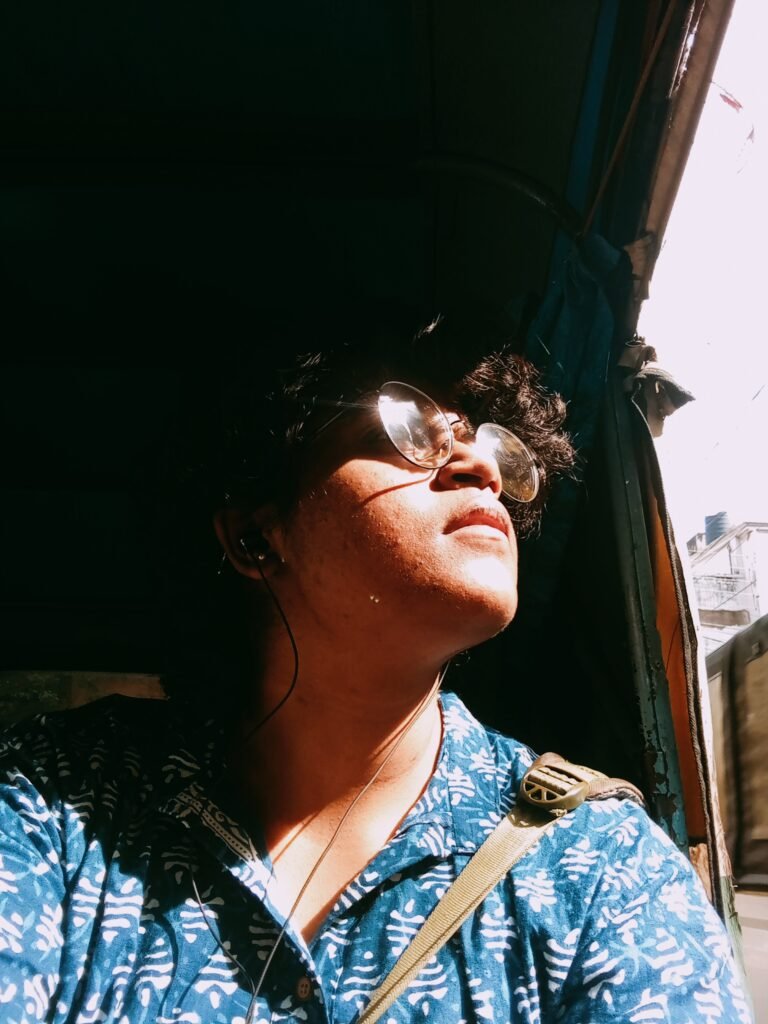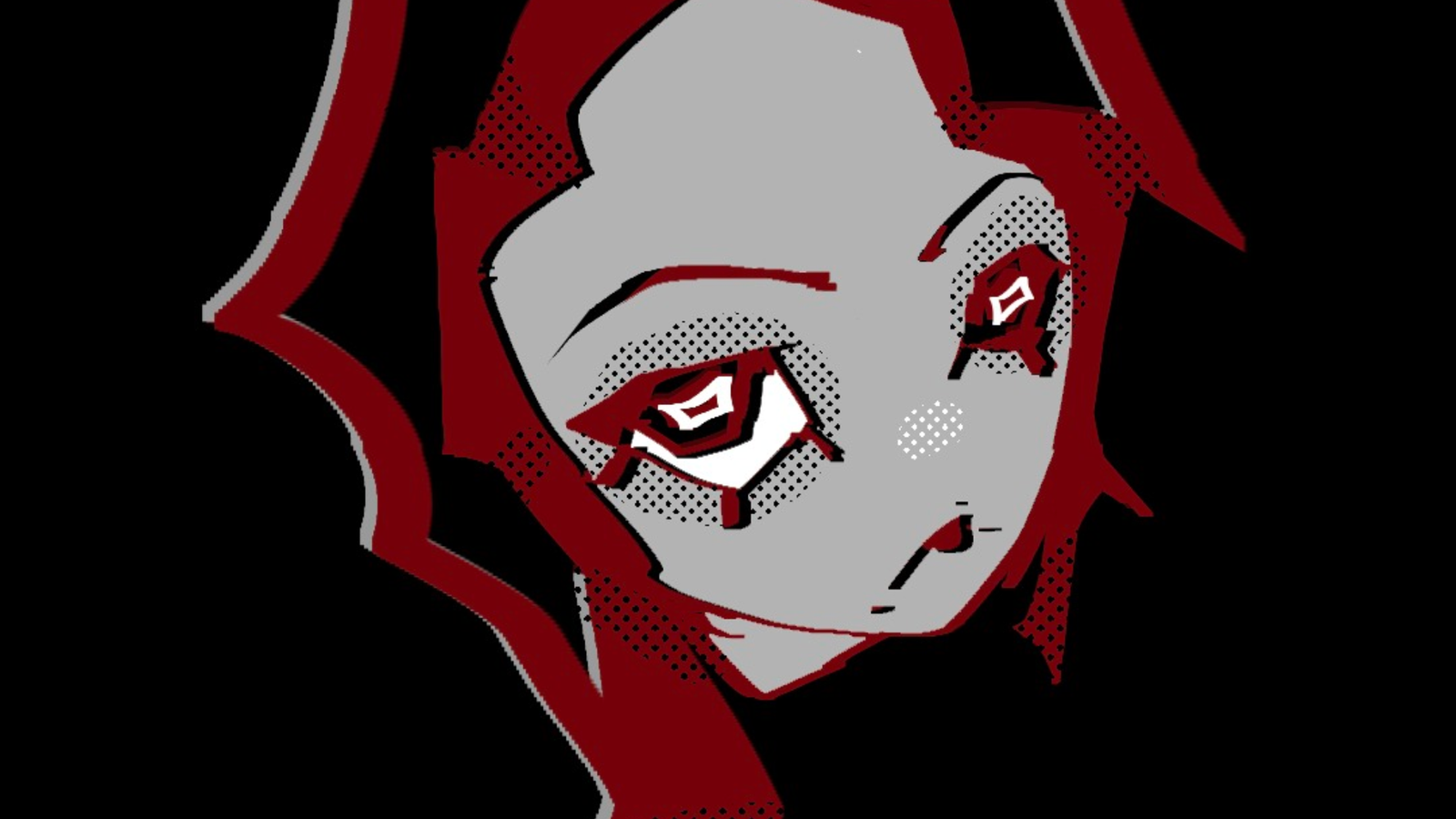No products in the cart.

Kalpurush – A dive into the mind of a Modern-day bard
When team Daxayoni reached out to “Kalpurush” for an exclusive interview, we knew we were about to embark on a journey into the heart of contemporary literature. Few voices resonate with the authenticity and depth of Kalpurush. Seamlessly blending the traditional with the modern, their journey stands as a testament to the transformative power of words. From the nostalgic echoes of ghazals and old Bollywood tunes to the dynamic world of fanfics, their work is a mélange of emotions, experiences, and evocative imagery. As we present this conversation, we uncover the layers behind the pen name, exploring the inspirations, challenges, and aspirations of an artist who continues to redefine the boundaries of creative expression. Join us as we step into the world of Kalpurush, a realm where dreams take shape, and stories come alive. What follows is the unabridged version of our enlightening dialogue
Origin and inspirations
Daxayoni: Who or what were your earliest influences in writing?
Kalpurush: Music has always been a significant influence for me. I find myself drawn to lyricism, complemented by a mesmerizing rhythmic melody. However, if I were to pinpoint the roots of my poetry writing, it would be the Ghazals, Shayari, and old Bollywood music I grew up listening to on cassette tapes. My elders often told me that as an infant, I wouldn’t sleep unless I had listened to my daily dose of Jagjit Singh. I believe the seeds of my passion were sown then.
Daxayoni: Are there any particular events or experiences in your life that have significantly shaped your writing style or themes?
Kalpurush: Themes of love, loss, and heartbreak, which have historically inspired poets, resonate with me as well. My serious foray into writing began after I turned eighteen. Prior to that, I had scarcely considered it a hobby. Starting a diary to express emotions I struggled with made me realize that words flowed more naturally to me than I had initially thought. Admittedly, the first poems I penned were far from perfect, but they were genuine expressions. Without that initial step, I might never have aspired to be a writer.
The Journey
Daxayoni: How did you begin your writing journey, and what inspired you to start?
Kalpurush: The first poem I ever wrote was in seventh grade for our school magazine. It was childlike, but I remember being very proud of the rhyming scheme at the time. I was extremely delighted when my poem was selected and printed in the magazine. I still treasure that copy. Later, I wrote my first detective novella and showed it to my English teacher at home. She praised me highly. She lent me a science fiction book called “Eighteen Scars,” written by a boy not much older than I was at the time. That inspired me to want to publish my own book someday. I remember thinking, “If he could do it, then so can I.”
Daxayoni: Can you share some insights into your creative process? How do you come up with ideas, and what keeps you motivated?
Kalpurush: Ideas come to me in dreams, and I describe it as storing them like cars in a parking lot. If I want to drive a particular car, I can always take it out without disturbing the other cars. Occasionally, a car will run out of fuel or need its gears to be fixed, and I’ll have to tend to it. But I am almost always certain of how many cars I have, and I never mix up which is which. It’s a unique experience as a writer and feels almost like cheating in a way. Dreams are my main source, but for poems, I also draw a lot of inspiration from real life, my day-to-day experiences, or the media I consume. Mostly, I like to keep my writing as a reflection of my mind and how I perceive the world.
Daxayoni: How did you begin your writing journey, and what inspired you to start?
Kalpurush: The first poem I ever wrote was in seventh grade for our school magazine. It was childlike, but I remember being very proud of the rhyming scheme at the time. I was extremely delighted when my poem was selected and printed in the magazine. I still treasure that copy. Later, I wrote my first detective novella and showed it to my English teacher at home. She praised me highly. She lent me a science fiction book called “Eighteen Scars,” written by a boy not much older than I was at the time. That inspired me to want to publish my own book someday. I remember thinking, “If he could do it, then so can I.”
Daxayoni: Can you share some insights into your creative process? How do you come up with ideas, and what keeps you motivated?
Kalpurush: Ideas come to me in dreams, and I describe it as storing them like cars in a parking lot. If I want to drive a particular car, I can always take it out without disturbing the other cars. Occasionally, a car will run out of fuel or need its gears to be fixed, and I’ll have to tend to it. But I am almost always certain of how many cars I have, and I never mix up which is which. It’s a unique experience as a writer and feels almost like cheating in a way. Dreams are my main source, but for poems, I also draw a lot of inspiration from real life, my day-to-day experiences, or the media I consume. Mostly, I like to keep my writing as a reflection of my mind and how I perceive the world.
Diverse Writing Styles
Daxayoni: How do you approach writing poetry versus fanfics?
Kalpurush: It really depends on the mood. If a poem comes to me, I’ll start jotting it down in my notes app, and might take a significant period of time to finish it. The longest I’ve taken to complete a poem is probably a month. However, fanfics are a different ballgame. If I’m engrossed in a particular media or character, and there’s a specific emotion, trope, or situation I want that character to experience, and I’m in the right frame of mind, I’ll dive right into writing. I can churn out up to three thousand words in one go if I’m in the right headspace. But, there are times when inspiration strikes at inconvenient moments – like when I’m showering, on the verge of falling asleep, or in the middle of a lecture. I try to capture as much as I can in my notes app during such times, but sometimes, some ideas do get lost.
Daxayoni: Are there recurring themes or motifs in both your poetry and fanfics?
Kalpurush: My poetry and fanfics are distinct from each other. Poetry is a reflection of my personal experiences and emotions. It’s deeply personal, and there’s a lot of me in it. Fanfics, on the other hand, are primarily about the characters I adore and want to spotlight. While I might channel some of my feelings through their actions, it’s mostly about them and not me. They wouldn’t necessarily act as I would, and vice versa. However, I frequently explore themes of grief and anger. Heartbreak is a more dominant theme in my poems than in my stories, but intense emotions are a constant in both.
Daxayoni: How do you see the transition from poetry and fanfics to novels? What are you most looking forward to in this shift?
Kalpurush: After dabbling in writing for a few years, I now feel confident enough to craft a full-fledged story of my own. These are ideas I’ve always harbored, and I believe I’ve garnered enough experience to at least begin. Poetry will always remain a staple for me, and I have no intentions of abandoning it. I believe that the profound ideas brewing in my mind might not be fully realized in just fanfics. Hence, the gradual transition to novels excites me. However, I plan to tread this path slowly, as I’m wary of making mistakes.
The Writing Experience
Daxayoni: Over the years, what challenges have you faced in finding the right platform to share your work?
Kalpurush: For a long time, I struggled to find an appropriate platform to share my work. It felt as though no website I used was ever suitable enough for me. I grappled with understanding complex coding or navigating the sign-up process. These challenges made it cumbersome for me to post my writing, often demotivating me from sharing due to the effort required.
Daxayoni: How have barriers like ads, complicated sign-up processes, or paywalls that you mentioned, affected your writing experience?
Kalpurush: Ads and paywalls, especially those imposed by domain providers, feel very self-centered. Such overtly capitalistic marketing techniques strip away the essence of the creation and the potential bond between a creator and their audience. These barriers also make it difficult for creators to even begin the sharing process, especially when confronted with intricate sign-up procedures.
Daxayoni: How important is it for you to find the correct audience for your work?
Kalpurush: Different types of work require different platforms, and only specific platforms can attract the right audience. Managing social media can be a real challenge, particularly with its ever-evolving algorithms. For me, it’s crucial to identify my target audience first and then determine a way to showcase my creative process that appeals to them. It’s not about tailoring my work to their preferences, but rather finding a presentation method that draws them in rather than repelling them at first glance. There’s a reason clickbait thumbnails on YouTube are effective.
Online Interactions and Community
Daxayoni: Can you share more about your interactions with your online audience? Have you met any of them in real life?
Kalpurush: Online interactions have their ups and downs. For the most part, I’ve been fortunate to receive mostly positive responses. However, that doesn’t mean I haven’t encountered the darker side of the internet. It’s disheartening to see many of my talented friends succumb to it. On a brighter note, I’ve met some incredible people online who have shown tremendous support for my creative work. After the pandemic, I had the opportunity to meet many of them in person, and I’ve cherished those interactions. I wish I could connect with each and every one of them.
Daxayoni: How do people in your real-life circle perceive your art and writing?
Kalpurush: I tend to keep my real-life circle and online circle separate, almost like two distinct versions of myself. While they occasionally overlap, it hasn’t reached a point of discomfort for me. I’m quite reserved when it comes to sharing or showcasing my work in real life because there’s always a face, name, and reputation attached to it. This comes with many expectations, and I grapple with rejection-sensitive dysphoria. Consequently, my real-life acquaintances know relatively little about my true self. They seldom see my art in its entirety. Online, the dynamics change due to the potential for anonymity. I can choose to share and then move on without dwelling on others’ opinions. The offline world doesn’t provide that luxury for me.
Daxayoni: How has the anonymity of the online world benefited you as a writer?
Kalpurush: The freedom to share anything I desire is significantly amplified by anonymity. Part of me craves recognition, longing to highlight my successes and proclaim, “I did that!” Yet, a larger part of me finds contentment in restraint. There’s a thrill in knowing I’ve created something that many recognize, yet they can’t pinpoint its origin – a secret I can chuckle about. The absence of a face or name attached to my work has been a blessing. I’m free from the anxiety of judgment or unsolicited comments. I don’t fret about unintentionally offending a close relative. I can simply be myself, with no strings attached.
Audience Response
Daxayoni: How has the response to your work evolved since you started writing in 2021?
Kalpurush: In 2021, the response to my fanfics was overwhelming. It was predominantly positive and incredibly motivating. My poems, on the other hand, didn’t receive as much attention, but that wasn’t a concern for me since original creation wasn’t my primary focus then. While I believe this dynamic somewhat hindered my personal projects, I also see its necessity. Had I not experienced that surge of fandom enthusiasm, I might not have felt the urge to eventually branch out and concentrate on my original work. I genuinely cherished every moment of that journey and am grateful that it was largely positive and constructive.
Daxayoni: You’ve mentioned that fan work is more engaging. Can you share some examples or experiences?
Kalpurush: The design of social media algorithms predominantly boosts fandom content, especially content related to a trending fandom. This pushes artists into a vicious cycle, compelling them to produce more content centered around trending topics. As a result, original content often gets overshadowed. While established artists might not feel the pinch, emerging creators often bear the brunt of this system. There have been instances where some of my pieces, which I didn’t consider my best, gained significant traction unexpectedly. However, when a subsequent post, into which I poured more effort, didn’t perform as well, it was disheartening.
Daxayoni: How did the response change after “Daxayoni”?
Kalpurush: Daxayoni’s platform is refreshingly straightforward, eliminating concerns related to complex algorithms. There’s no “Like” button or comment section—features that can sometimes dampen a creator’s spirit. The only metric available to writers is the ‘views’ count. Having trained myself to not be swayed by numbers, I rarely feel the need to check the view count on my blog. I embarked on this journey without lofty expectations, so even modest engagement brings me joy.
Feedback and Growth
Daxayoni: How do you feel about receiving comments on your work?
Kalpurush: I’m not particularly keen on receiving public comments. Being an anxious individual, the idea of something being so openly accessible to everyone is somewhat daunting for me. It’s not that I’m averse to criticism, but even appreciation can be overwhelming. Whether I receive an abundance of comments or very few, both scenarios can trigger anxiety. I would much prefer a personal DM if someone genuinely appreciated my work. Such messages hold more value to me than numerous public comments.
Daxayoni: How do you cope with the highs and lows of audience engagement?
Kalpurush: The fluctuations in audience engagement used to affect me significantly in the beginning. When one of my pieces performed exceptionally well online, I felt pressured to consistently produce similar successes. Monitoring analytics became a tedious task, and I realized that I wasn’t enjoying the creative process anymore. I’m now trying to move past that phase. I make an effort not to obsess over view counts, and even when I do glance at them, I don’t let them affect me deeply. If even one person reads and appreciates something I’ve written, I consider it a victory. My current approach is to hit the “Post” button and then distance myself from the app for a few days. This strategy has been beneficial.
Daxayoni: Are there any particular pieces of feedback or interactions that have significantly impacted your growth as a writer?
Kalpurush: When I began posting my fanfictions, certain comments truly brightened my day. Like many fanfic writers, I deeply value detailed comments on my work, especially those that highlight specific aspects and elaborate on what the reader enjoyed most. Some feedback has been so touching that it moved me to tears. These encouraging words from random internet users have profoundly influenced my perception of my own writing. Additionally, receiving compliments from writers I admired in the community served as a significant boost to my confidence.
Instagram Presence
Daxayoni: You have an active presence on Instagram. How do you see this platform in relation to your writing?
Kalpurush: I used to post poetry on Instagram 3 years ago, but I stopped because it became too demanding, and I felt that I didn’t have the right audience for it back then. Currently, I’m comfortable with casually sharing my poetry there, or offering glimpses of some of my pieces, but that’s about it. I primarily view Instagram as a tool for promoting my work, especially when I’m not documenting my life. To me, Instagram is a virtual diary, and while my writings are a part of it, they aren’t the central focus.
Future Endeavors
Daxayoni: As you plan to venture into novel writing, can you share any themes or genres you’re particularly interested in exploring?
Kalpurush: I’ve always been a huge fan of detective novels, thrillers, crime dramas, as well as dystopian and apocalyptic themes. I wish to delve deeper into both these genres. I have plans to write more than just novels in these genres in the future, and I’m eagerly anticipating that journey.
Daxayoni: Are there any authors or novels that inspire your upcoming journey into novel writing?
Kalpurush: I grew up reading Satyajit Ray’s “Feluda” and Arthur Conan Doyle’s “Sherlock Holmes”. By the time I was in sixth grade, I had finished all the novels and books I could find about them. Those two writers and their respective works are my biggest inspirations, especially Ray’s works, not just in books but also in cinema. James Dashner introduced me to the dystopian genre. I fell in love with “The Maze Runner” series as a fourteen-year-old, and that significantly shaped my outlook on the world. Today, I’m a fan of the classics. Being a literature major tends to have that effect.
Behind the Scenes
Daxayoni: Can you give us a glimpse into your daily writing routine? Do you have any rituals or habits that help you get into the writing zone?
Kalpurush: I wish I could say that I did. Unfortunately, I’m not a very organized person. I struggle with taking up too many projects at once and then being unable to finish them within a time limit. Poems and prose that I write casually aren’t that big of a deal because they can usually be finished in one sitting, even though the editing process does take up a lot of time since I’m a perfectionist. It’s my novels that take the longest. I’ve had one idea lingering in my brain for over four years now. I’ve tried writing it many times and have scrapped it every single time. But I have faith that someday I’ll align with my ideas.
Daxayoni: How do you deal with writer’s block or moments of doubt?
Kalpurush: When faced with writer’s block, I sort of just let it go. I don’t find solace in struggling to do something that I clearly cannot at that given moment. I’ve found that pressuring myself to finish something only because there’s a deadline doesn’t allow my creativity to blossom to its full potential. I’ve found it best to write if I give myself the proper time to think, formulate, and then generate gradually. Art also helps a lot in clearing out the mind, and as a hobby artist myself, I’ve found it to be an extremely reliable method.
Personal Favorites and Recommendations
Daxayoni: As we’re featuring some of your favorite write-ups in this interview, could you list a few of them and share what makes them special to you?
Kalpurush: Out of everything that I’ve posted so far on Daxayoni, ‘Ladies Seat’ is a recent personal favorite of mine. I’ve never really written humor, and I don’t think I’m too good at it in terms of speaking anyway, but as a way of self-expression, I find it an excellent coping mechanism. With this piece, I found resorting to it quite essential. I’m glad I gave it a year to mature inside my head before I actually wrote it down.
In terms of poems, ‘Like Fishbone in a Garbage Bin’ holds a special place in my heart. It was originally part of a quintet based on the five stages of grief, and this one stood for Depression. It’s very fitting and also has a bit of myself in it.
Daxayoni: Are there any books, movies, or other forms of media that you’d recommend to your readers for inspiration?
Kalpurush: The ‘Pather Panchali’ trilogy by Satyajit Ray is a must-watch for every storyteller out there. It’s not only a fine piece of art but also a movie series that sparked the first light of inspiration within me. I’ve watched those films over the years, and each time I find deeper meaning and intricate details that are absolutely exquisite.
Final Thoughts
Daxayoni: As we conclude this interview, is there any advice you’d like to give to budding writers or anything else you’d like to share with your readers?
Kalpurush: Recently, I was watching a Neil Gaiman interview, and he said something that’s very important for all creatives to hear, I think. The crux of what he said was: that we should go out there into the world, get a job or get fired from one, and then come back in a few years’ time, and we’ll all have stories to tell. Experience is key. Gather it, as much as you can, and you’ll have a lifetime of stories to tell. (Owing to Neil Gaiman’s support for Israel, Kalpurush has recanted the quote from Neil Gaiman)
Follow Kalpurush on their Instagram account here: https://www.instagram.com/pagla.basu/

Epilogue
In the vast realm of literature and art, every voice has its own unique resonance. Through this intimate conversation with Kalpurush, we’ve journeyed into the heart of a writer’s world, understanding their inspirations, struggles, and aspirations. Their candid reflections offer a mirror to many who tread the path of creativity, reminding us that the journey is as significant as the destination. As we step away from this dialogue, we are left with the indelible impression of a soul that finds solace in words and the power of stories. Kalpurush’s journey is a testament to the enduring spirit of creativity, and as they continue to weave tales and touch lives, we, the readers, eagerly await the next chapter.






POST COMMENT